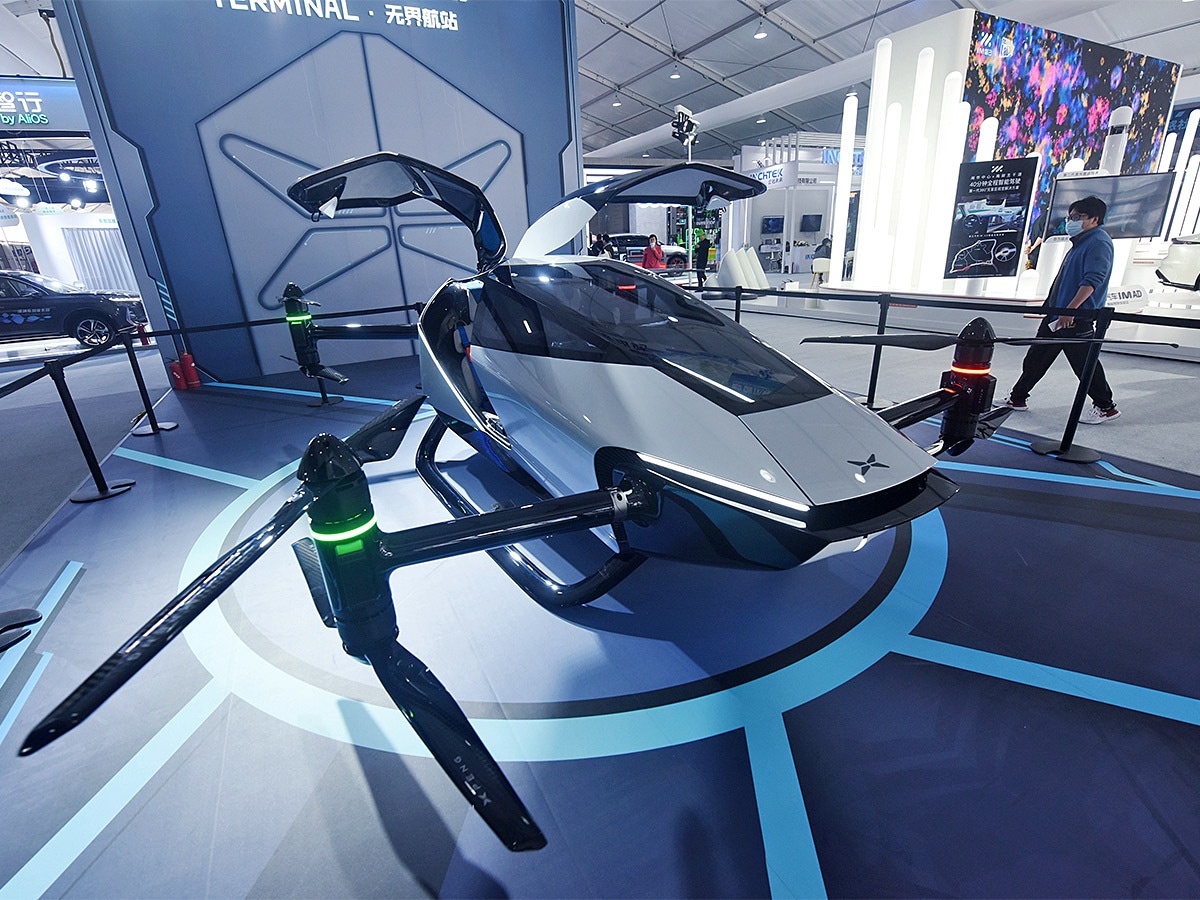The XPeng [XPEV] share price has taken to the skies since the electric vehicle (EV) maker unveiled plans for a flying car (pictured) at its 2021 Tech Day on 24 October.
Since then, the XPeng share price has risen 8.7% to $46.90 on 2 November – the stock had initially shot up 11.5% to an intraday high of $48.42 on 25 October. At the event, the EV maker revealed plans to make electric cars with flight capability via its offshoot HT Aero from 2024.
The aim is to mass-manufacture the flying car, known as X2, at a cost for drivers of $157,000, according to Techcrunch. In late October, HT Aero raised $500m from outside investors and venture capital firms.
8.7%
Xpeng's share price increase between 24 October Tech Day and 2 November close
Raising the voltage
The group says it is also looking to debut a new flagship SUV at the Guangzhou Auto Show in November. From next year, it plans to bring in highly advanced driver-assist systems and a self-driving car service.
XPeng is also aiming to introduce the first-ever 800 high voltage mass production SiC (silicon carbide) platform, with new generation “X-Power” superchargers. These can charge cars for a range of up to 200 km in only five minutes.
In addition, XPeng plans to launch lightweight 480kW high voltage supercharging piles and safety monitoring to help increase convenience for EV drivers when they charge up.
“Our exploration of more efficient, safer, carbon-neutral mobility solutions goes far beyond just smart EVs and is the cornerstone of our long-term competitive advantages,” He Xiaopeng, CEO of XPeng, said.
It is also setting down quite the challenge in the increasingly competitive EV marketplace in China. XPeng’s competitors include Nio [NIO], Elon Musk’s Tesla [TSLA], who also has ambitions to take cars airborne, Warren Buffett-backed BYD [1211.HK] and Li Auto [LI].
Battle of the EVs
XPeng, whose share price has surged by 147% over the last 12 months, is in a strong position in the competitive EV space. According to Investors.com, XPeng has 439 supercharging stations across China against Tesla’s 1,000.
In early November, the group also revealed that it had delivered 10,138 cars throughout October, down from 10,412 in September, but a whopping 233% year-on-year increase. It also marks the second month in a row where the group has delivered more than 10,000 cars.
As of the most recent update, XPeng has sold more than 100,000 cars and said the impact of the global semiconductor chip shortage had been limited.
It added that deliveries during October included 6,044 of XPeng’s P7 flagship sedan, up 187% year on year. CNBC reports that it also delivered 3,657 units of its G3 and G3i sports utility vehicle, reaching a monthly record since the vehicle’s launch in December 2018.
Analysts drive up price targets
Analysts are bullish that XPeng’s growth will continue. Deutsche Bank raised its price target on the stock from $51 to $57, representing a 19% rise from 1 November close. It believes that XPeng’s sales will keep accelerating and sees a strong market for its yet-to-be-released flying cars in both China and Europe.
Deutsche Bank’s Edison Yu believes XPeng’s mid-November third-quarter earnings could bring some “upside from higher volumes”. For the fourth quarter, as reported by Nasdaq, Yu forecasts between 35,000 to 40,000 deliveries, achieving the 15,000 monthly target in December. This will bring full-year volume to almost 94,000 deliveries, up from his 87,738 estimate. Yu also likes XPeng’s new Guangzhou factory, which is set to reach an annual capacity of 100,000 from the second half of next year.
Meanwhile, Bernstein analysts have an outperform rating and a $56 price target, while BofA Securities holds a buy rating and a $61 target. Tip Ranks rates the XPeng share price as a consensus strong buy.
Continue reading for FREE
- Includes free newsletter updates, unsubscribe anytime. Privacy policy





